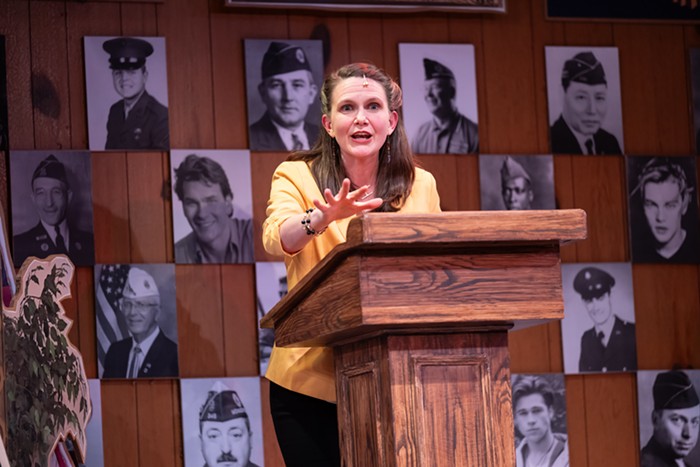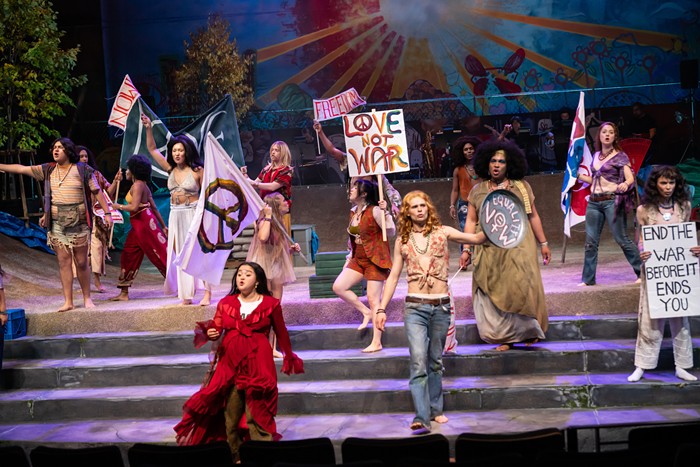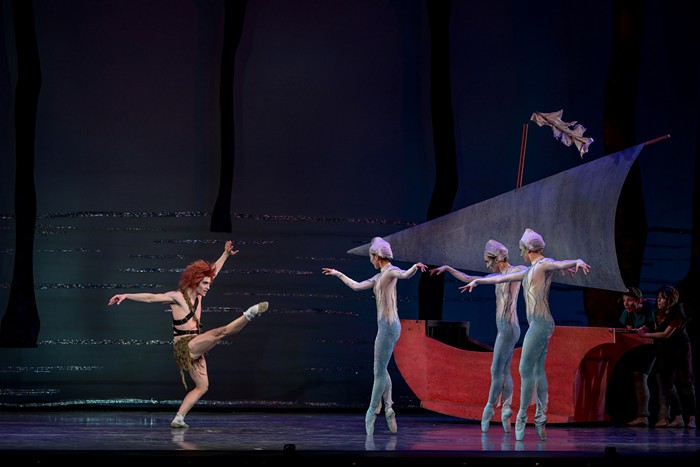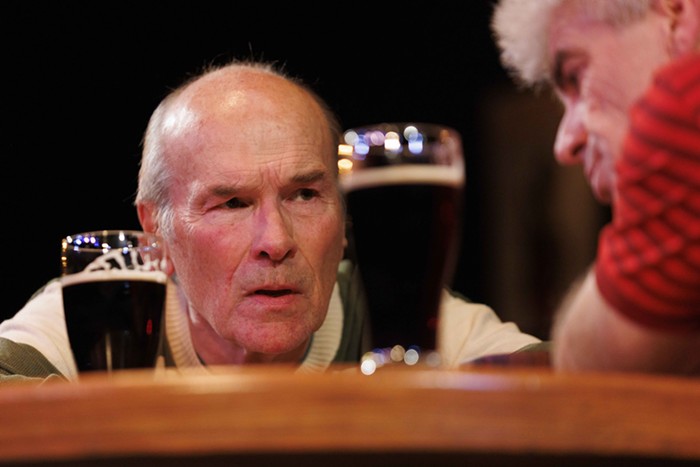WITH its treacly-as-fuck first two acts and 11th-hour descent into existential angst, there's a reason Thornton Wilder's Our Town is primarily a staple of high school drama departments. It's not bad, per se, but its tenuous pairing of death panic with a cheerily sanitized view of small-town life is well suited to teenagers looking to dip a toe into something akin to experimental theater—and not really anyone else.
This is why I waited until the very last minute (not hyperbole, it closes Sunday) to review Portland Center Stage's Our Town, directed by Rose Riordan, and starring a metric-ton of this city's local theater talent.
If you were never a high-school drama geek, here's the rundown: Our Town is basically about romanticized life in a tiny little community called Grover's Corners, New Hampshire, with a birth/marriage/death plot surrounding childhood pals and future marrieds George (Sathya Sridharan) and Emily (Nikki Massoud). The first two acts are honestly pretty boring. The third, which is about death, is where things get interesting. I've already gotten out ahead with my bias, so what works about this production? Well, aside from it being Our Town, a lot.
The third act is haunting, as it should be. With a visual conceit that's more than a little creepy, it's worth the price of admission alone (by contrast, I almost fell asleep during the cutesy machinations of Act One). Sharonlee McLean, one of Portland's most versatile actors, almost steals the show as weepy, gossipy Mrs. Soames. As the milkman, Howie Newsome, Vin Shambry is great as always, and given too little to do. As George Gibbs, Sridharan is an excellent, affably charming version of Jimmy Stewart. And Shawn Fagan is pleasantly sincere as the play's Stage Manager, who has the burdensome task of narrating everything in this prop-less production, a role that at worst is a thankless chore. Instead, it's one of the play's strongest through-lines.
That said, a lot here hasn't aged well at all: Thornton Wilder sure did like marriage, as seen in the play's unexamined statements like "Almost everybody in the world gets married, you know?" (My theater buddy and I, both unmarried ladies, shared a communal eyeroll at that particular juncture.) Wilder's emphasis on soda-shoppe boy-howdy hetero romance and traditional gender roles is awfully normative, and very un-Portland. Also (SPOILER ALERT!), the use of Emily's death in childbirth as fodder for poetry, basically, never sat well with me, and still doesn't. Yes, Grover's Corners is a product of another time and place, and for that, at least, we can be grateful.



















